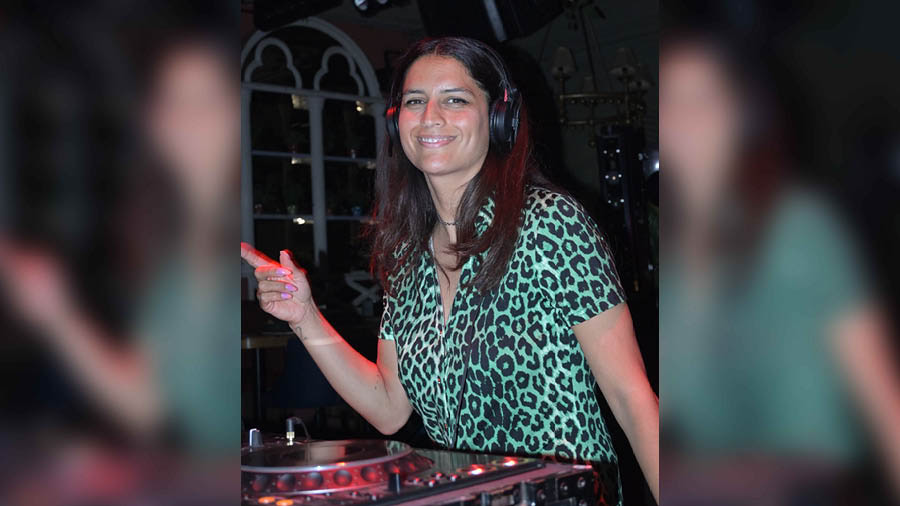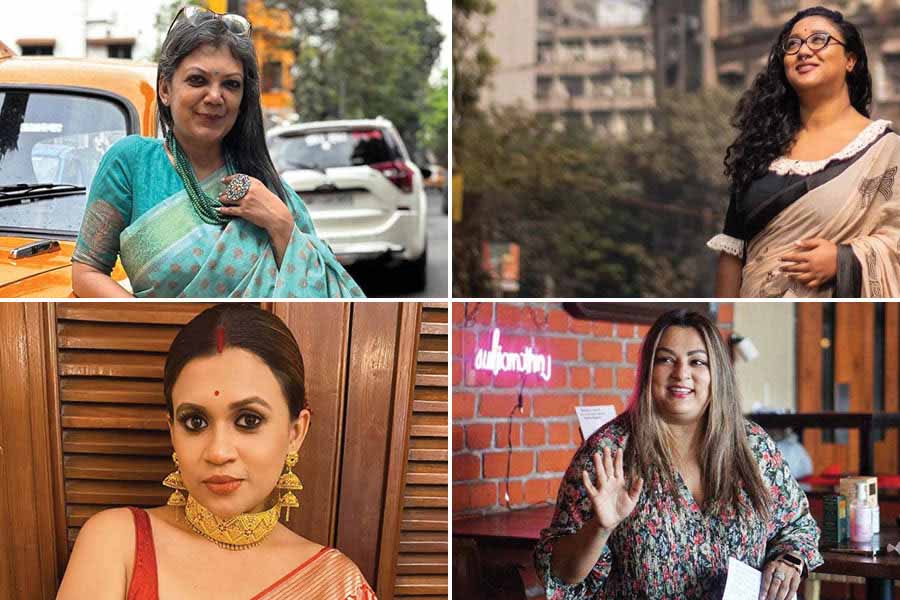They were born in the same city; but their careers have taken them to different parts of the world. While Dibyashree Ghosh, aka Aayna, started in the clubs of Kolkata, Shayantani C Gupta, aka Shaiflai, played her first gig in Bengaluru with her real name. What’s common about their journey? The way they started! Being introduced to the nightlife and music scene got them excited about being involved in entertainment, and thus began the journey of the two city DJs.
My Kolkata spoke to the two performers, who not only shared stories from their journey, but also spoke of the challenges they face in this male-dominated industry.
Dibyashree Ghosh, aka Aayna

Aayna, now 23, was first drawn to nightlife at the age of 14
Born to a Bengali family, Dibyashree Ghosh, 23, was raised on Rabindrasangeet and Nazrul geeti. But she found her rhythm through dance at 12. “I was introduced to the nightlife business through my sister at the age of 14, and I was instantly enthralled by the art form of DJing — because I realised that the DJ was controlling the vibe by weaving a journey through his playlist,” she said. This led her to start curating playlists and casually performing at house parties, peaking her interest further. After graduating from school, she and her sister Ishita formed the first female DJ duo in Kolkata.
But while it’s all smiles and happy faces behind the console, what goes on behind closed curtains is often overlooked. One of the major challenges Aayna faces is “constantly having to prove that a DJ, who is also a woman, is not eye candy but a talent.”
Aayna has faced multiple instances where she was advised to express herself adequately through her styling because it apparently distracts her storytelling (via music). “Secondly, as a woman’s work trajectory progresses, instead of acknowledging her hard work and dedication, some criticise her success by suggesting it’s due to pleasing ‘superior men’ in the industry, rather than her own merit,” she says.
But does that bother her? Nah! “I don’t resist anymore, I don’t base my self-worth as an artiste on other’s notions. I now allow myself not just to feel good about curating a proper playlist, but also celebrate when I put together a good styled look,” she adds.
Clearly, that approach has worked for her — since now her name shows up in big fliers not only in India, but abroad as well. “I have been blessed to have gotten several amazing opportunities throughout my five-year career, but some of my highlights include playing at the Echoes of Earth festival in Bengaluru with a crowd of almost 18,000 people, representing my country for the first time in Grasslands Festival in Nepal and playing at Hilltop Goa,” she said.
Her relatively young career has gotten her quite far, so what is her secret?. “Listen to music daily, curate playlists to understand music flow, research venues and artistes before gigs, share mixes on Soundcloud and YouTube, embrace individuality in one’s style, and keep exploring. A vast music library makes for a better DJ!” she said.
Shayantani C Gupta, aka Shaiflai

Shaiflai’s journey into music began with dance
Another powerhouse who is making waves in the industry is Shaiflai, known as Shai in music circles. As a young child, Shai was deeply involved with dance, which was her first introduction to the power of music. “Dancing taught me about rhythm, expression and the sheer joy of moving to a beat, which laid the foundation for my love of music,” she said. This love for music took her down a rabbit hole where she explored different genres, styles and rhythms — and soon discovered the art of DJing. “From hanging out with musician friends to promoting events and curating music for club nights, I explored various aspects of the music scene until I learned the art itself. Eventually, my curiosity led me to learn mixing from a friend who runs a music school in Bengaluru. Although I didn't intend to pursue it as a career, I was fortunate to be invited to play at a club as Shayantani C Gupta, a non-DJ. The positive response from friends and attendees sparked gig inquiries, leading to the birth of Shaiflai,” she revealed.
According to the techno DJ, 20 per cent of the music industry comprises women, so being judged on their craft, appearance and getting booked for the right reasons has also been an issue. But the presence of women in such a male-dominated industry is increasing. “Women DJs have become more visible in clubs, festivals and on the global stage — challenging stereotypes and inspiring others to pursue their passion for music regardless of gender. However, there's still progress to be made in achieving gender equality and representation in the DJ-ing world,” she added. Some festivals even curate an all-girl line-up and women DJs are running podcasts and radio shows.
While Shaiflai has been creating vibes in different clubs in India, she has also taken her talent to Sri Lanka in 2023 and has had the opportunity to open and close for names like Dauwd, Stimming, Volen Sentir, Budakid, Kerala Dust, Innellea, Lampe and Ash Roy.
When we asked her what can be done to encourage more diversity and inclusion in the DJ community, she said that keeping an inclusive mindset is the key to ensuring the acceptance and celebration of diversity in the community. “We need more music mentors, organisers and promoters supporting diverse music as much as keeping an unbiased attitude while curating line-ups or shows. Body shaming and keeping a narrow mind towards female artistes should be shunned in all scenarios whether in public or private conversations, regardless of personal equations or favouritism,” she added.




